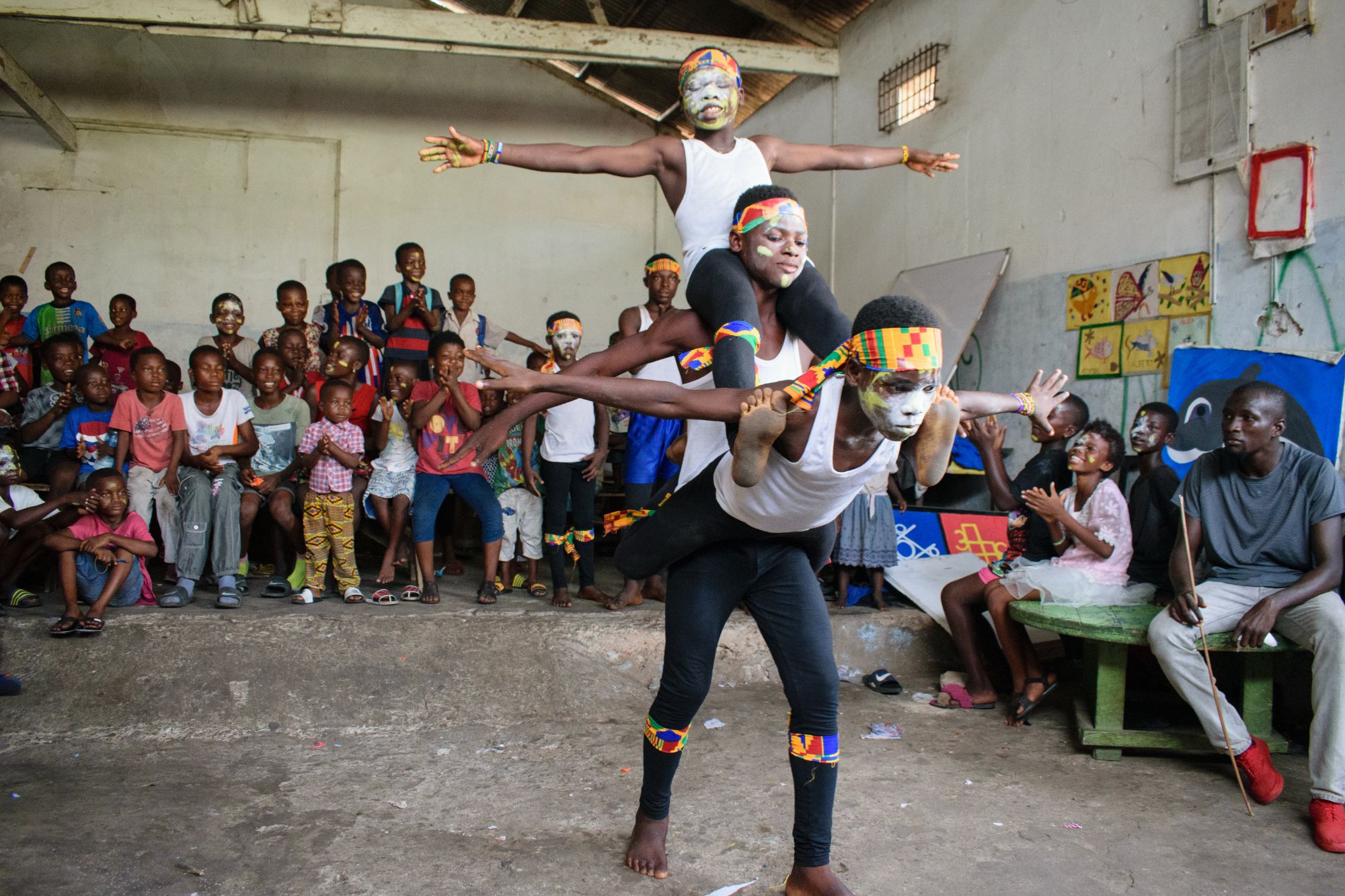PROJECTS
Between October 1, 2019 and October 31, 2020, the centre broadened its scope of operations, establishing additional linkages for collaborative projects at local and international levels. It was thus able to complete preliminary works on three major projects, including the production and archiving of digital documents on ‘Highlife and Hiplife as Means of Social Cohesion in Ghana’, ‘Indigenous Gold Forging in Ghana’ and the Anna Craven Pottery Collections.
Research and Digitization of Indigenous Gold Forging in Ghana
The LDRC has completed preliminary works on a project to Research and Digitize Indigenous Gold Forging in Ghana under the Endangered Material Knowledge Programme (EMKP), which the Arcadia Foundation sponsors. Led by Professor Kodzo Gavua, the LDRC has worked with six goldsmiths in Kumasi, including the Asante King’s personal smith, to study and document the processes of producing gold and silver ornaments using long-standing ‘indigenous’ methods and techniques that are endangered by contemporary global market and social circumstances. A montage of the video document of this work may be viewed via the following link:https://www.youtube.com/watch?v=LH6Q47aXkZU
Imagining Ghanaian Futures
The LDRC has completed preliminary works on a project to Research and Digitize Indigenous Gold Forging in Ghana under the Endangered Material Knowledge Programme (EMKP), which the Arcadia Foundation sponsors. Led by Professor Kodzo Gavua, the LDRC has worked with six goldsmiths in Kumasi, including the Asante King’s personal smith, to study and document the processes of producing gold and silver ornaments using long-standing ‘indigenous’ methods and techniques that are endangered by contemporary global market and social circumstances. A montage of the video document of this work may be viewed via the following link:https://www.youtube.com/watch?v=LH6Q47aXkZU
Vernacular Songs as Archives and Modes of Social Redress in Jamestown
With support from the LDRC, Professor Kodzo Gavua is currently directing research into “Vernacular Songs as Archives and Modes of Social Redress in Jamestown, Accra”. This research is a ‘Start-up Project’ of the “Imagining Ghanaian Futures” project which Kodzo has been leading the LDRC to execute since December 2020 with funding from the Arts and Humanities Research Council (AHRC) of the United Kingdom. The project involves a study of how coastal people of Ghana (at Elmina, Jamestown and Keta) memorialize their pasts and use lessons of the past to manage conflict and maintain social cohesion. The goal is to generate information that can enhance sustainable peace among peoples of diverse cultural, regional and language backgrounds in Ghana and across the globe.
African Cultural Heritage Programme
With support from the LDRC, Professor Kodzo Gavua is currently directing research into “Vernacular Songs as Archives and Modes of Social Redress in Jamestown, Accra”. This research is a ‘Start-up Project’ of the “Imagining Ghanaian Futures” project which Kodzo has been leading the LDRC to execute since December 2020 with funding from the Arts and Humanities Research Council (AHRC) of the United Kingdom. The project involves a study of how coastal people of Ghana (at Elmina, Jamestown and Keta) memorialize their pasts and use lessons of the past to manage conflict and maintain social cohesion. The goal is to generate information that can enhance sustainable peace among peoples of diverse cultural, regional and language backgrounds in Ghana and across the globe.
Legacies of Cross Cultural Interactions in Ghana
With support from the LDRC, Professor Kodzo Gavua is currently directing research into “Vernacular Songs as Archives and Modes of Social Redress in Jamestown, Accra”. This research is a ‘Start-up Project’ of the “Imagining Ghanaian Futures” project which Kodzo has been leading the LDRC to execute since December 2020 with funding from the Arts and Humanities Research Council (AHRC) of the United Kingdom. The project involves a study of how coastal people of Ghana (at Elmina, Jamestown and Keta) memorialize their pasts and use lessons of the past to manage conflict and maintain social cohesion. The goal is to generate information that can enhance sustainable peace among peoples of diverse cultural, regional and language backgrounds in Ghana and across the globe.
Field Schools
With support from the LDRC, Professor Kodzo Gavua is currently directing research into “Vernacular Songs as Archives and Modes of Social Redress in Jamestown, Accra”. This research is a ‘Start-up Project’ of the “Imagining Ghanaian Futures” project which Kodzo has been leading the LDRC to execute since December 2020 with funding from the Arts and Humanities Research Council (AHRC) of the United Kingdom. The project involves a study of how coastal people of Ghana (at Elmina, Jamestown and Keta) memorialize their pasts and use lessons of the past to manage conflict and maintain social cohesion. The goal is to generate information that can enhance sustainable peace among peoples of diverse cultural, regional and language backgrounds in Ghana and across the globe.
Remaking Societies, Remaking Persons
As part of an Andrew Mellon Foundation-sponsored project, “Remaking Societies, Remaking Persons”, the LDRC in 2020 partnered two volunteers of ASA, a German establishment, to study and document “Highlife and Hiplife as Means of Social Cohesion in Ghana”. So far, eight renowned highlife musicians and several indigenous music and dance groups have been studied and documented on video as a means of deepening understanding of Ghana’s public history. The following link shows a sample of the video documents generated so far: https://youtu.be/7J9nbmDxGrU
Anna Craven Pottery Collections
The Anna Craven Pottery Collections, for which the LDRC is creating an online digital inventory comprise field photographs and videos with metadata which derive from field research Anna Craven undertook across northern Ghana in collaboration with faculty and students of the Department of Archaeology and Heritage Studies. The photographs and video collections were forwarded to the centre by Anna Craven with the assistance of the Africa, Oceania and the Americas section of the British Museum.

.jpg)